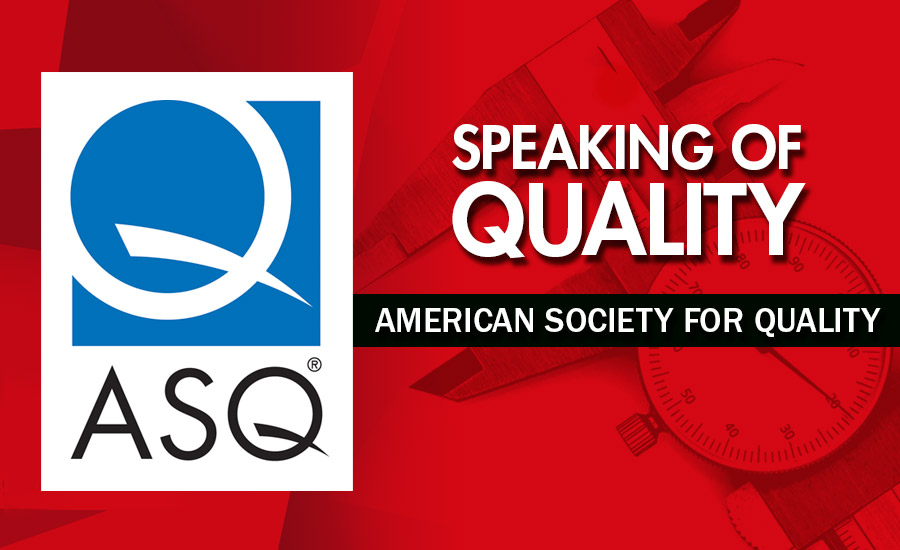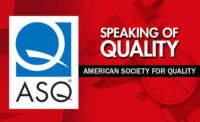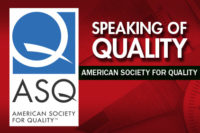You’re an inspector. Perhaps you’re an auditor. Maybe you’re a supervisor. Your job title specifies what you do now. What do you want to do in the future? More importantly, who do you want to be in the future? Where do you want the quality profession to take you next? These are all important questions.
It will come as no surprise to you that the quality profession has changed greatly since its mid-20th century origins. As organizations moved from product quality to lean manufacturing to organizational excellence, where the quality professional fit in the organization changed but the goal has remained: create a great product. You, as a quality professional, are instrumental in making sure products continue to get better. But are YOU bettering yourself?
While the quality profession continues to change, you need to make sure you remain indispensable in the eyes of employers. Improving current skills and building new skill sets helps you accomplish that goal.
As you gain work experience you need to place yourself in a position that sets you apart from colleagues for each career advancement opportunity. One reliable way to show your expertise is through achieving a quality certification. A certification can help you expand your opportunities—ones you might not even know exist—for career growth. And, let’s be real, it can earn you more money. According to the Quality Progress Salary Survey, a certification increases your earning power—one certification can add thousands to the average salary (You can find more salary information at http://asq.org/qualityprogress/salarysurvey and try the salary calculator at http://team.asq.org/salary-calculator/). Earning a certification can be a long and challenging process, but the accomplishment of this goal can bolster your confidence AND increase your employer’s confidence in your ability to get the job done. The advantage of many certification programs is that—along with demonstrating that you’ve mastered the body of knowledge—you’re signifying the level of work experience and qualification you have within the industry.
Choosing a quality certification can be a daunting task. You might want to focus on a particular job (certified quality auditor) or perhaps a methodology (certified Six Sigma green belt). ASQ has made these decisions easier by releasing an online certification pathway tool (https://asq.org/cer).
Certification demonstrates that you know the “hard” side of quality—the tools, technologies, and methodologies to excel in a specific quality area. There are also “soft” skills you need to cultivate to progress into—and thrive within—management jobs. There are many leadership programs in the marketplace, but few directly meet a quality professional’s needs. ASQ’s Emerging Quality Leaders Program takes mid-level managers through a 12-month program, accelerating the transfer of executive knowledge, soft skills, and broader industry perspectives to develop thought leadership in the next generation of quality executives.
There is an entire quality world out there for you to explore and take every advantage of. Onward and upward.
Core Competencies and the Emerging Quality Leader
The ASQ Human Development and Leadership Division has developed a set of competencies for quality executives. Those competencies provide the framework for the Emerging Quality Leaders Program. The competencies identified are:
- Visioning: Establishing a set of guiding principles that represents your organization’s reason for being.
- Communication: Clearly and confidently providing direction to my workgroups and teams.
- Motivation: Driving and governing actions for people to utilize within the organization.
- Appreciate a System: Respecting and enforcing processes that optimize the complexities of interactions within divisions and departments.
- Strategic Planning: Critical thinking and directing the high-level priorities for the organization.
- Change Management: Championing change and effective process deployment for the future sustainability of the organization.
- Change Management: Championing change and effective process deployment for the future sustainability of the organization.
- Coaching/Mentoring: Understanding the talents and ambitions of your direct reports and fostering a path forward.
- Coaching/Mentoring: Understanding the talents and ambitions of your direct reports and fostering a path forward.
- Well-Being: Daily adoption of positive and productive habits to increase personal and organizational wellness.


